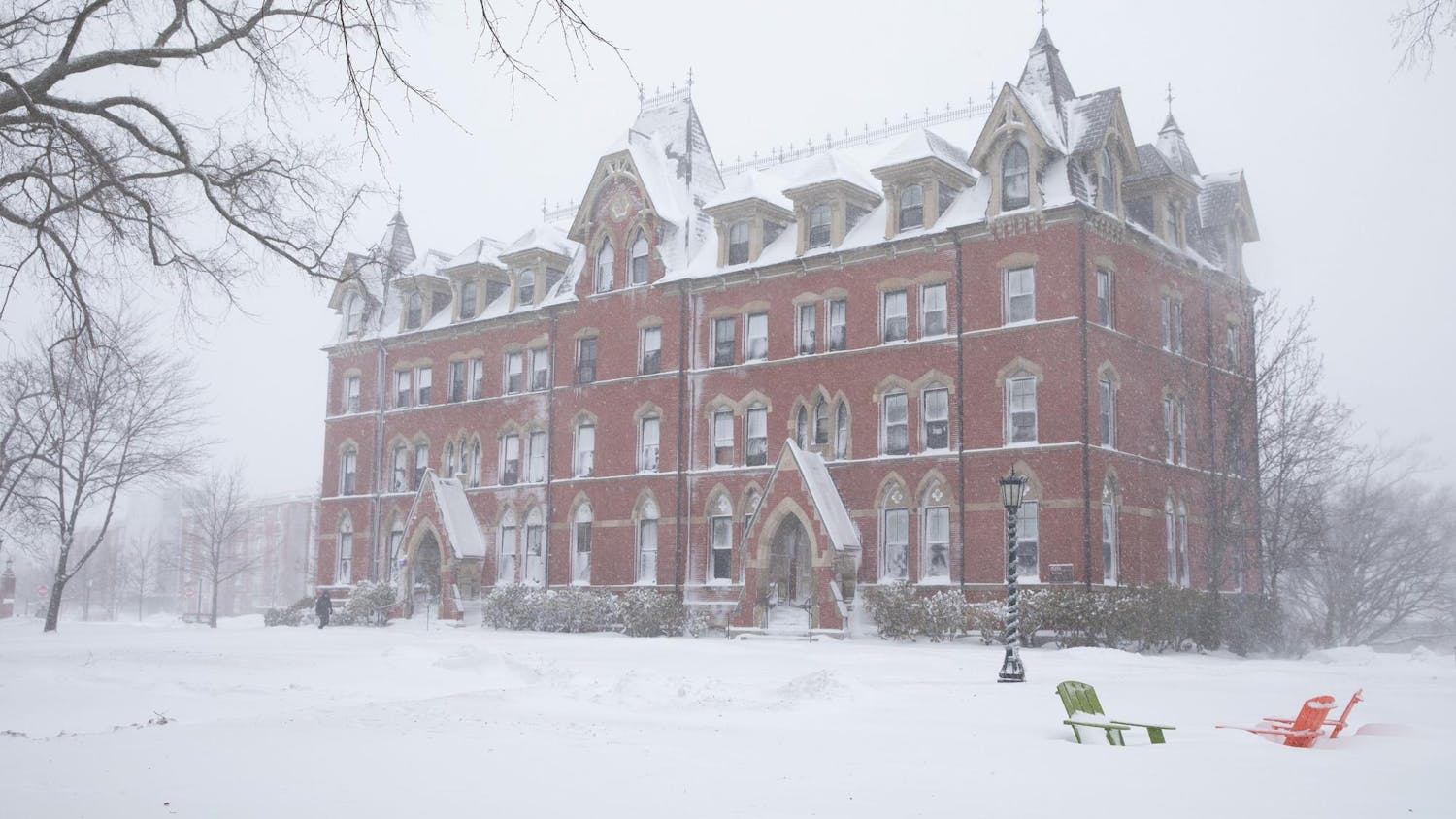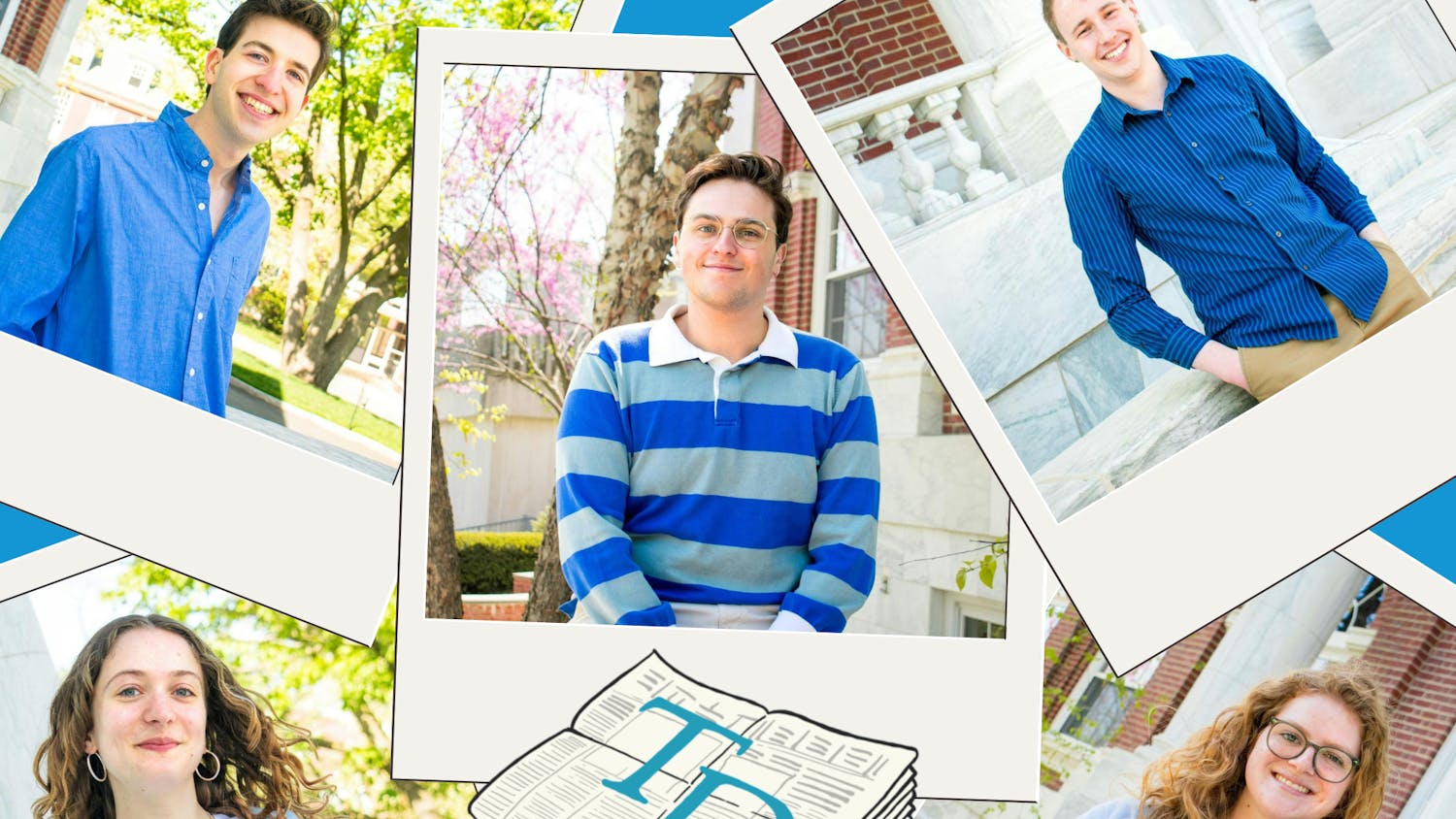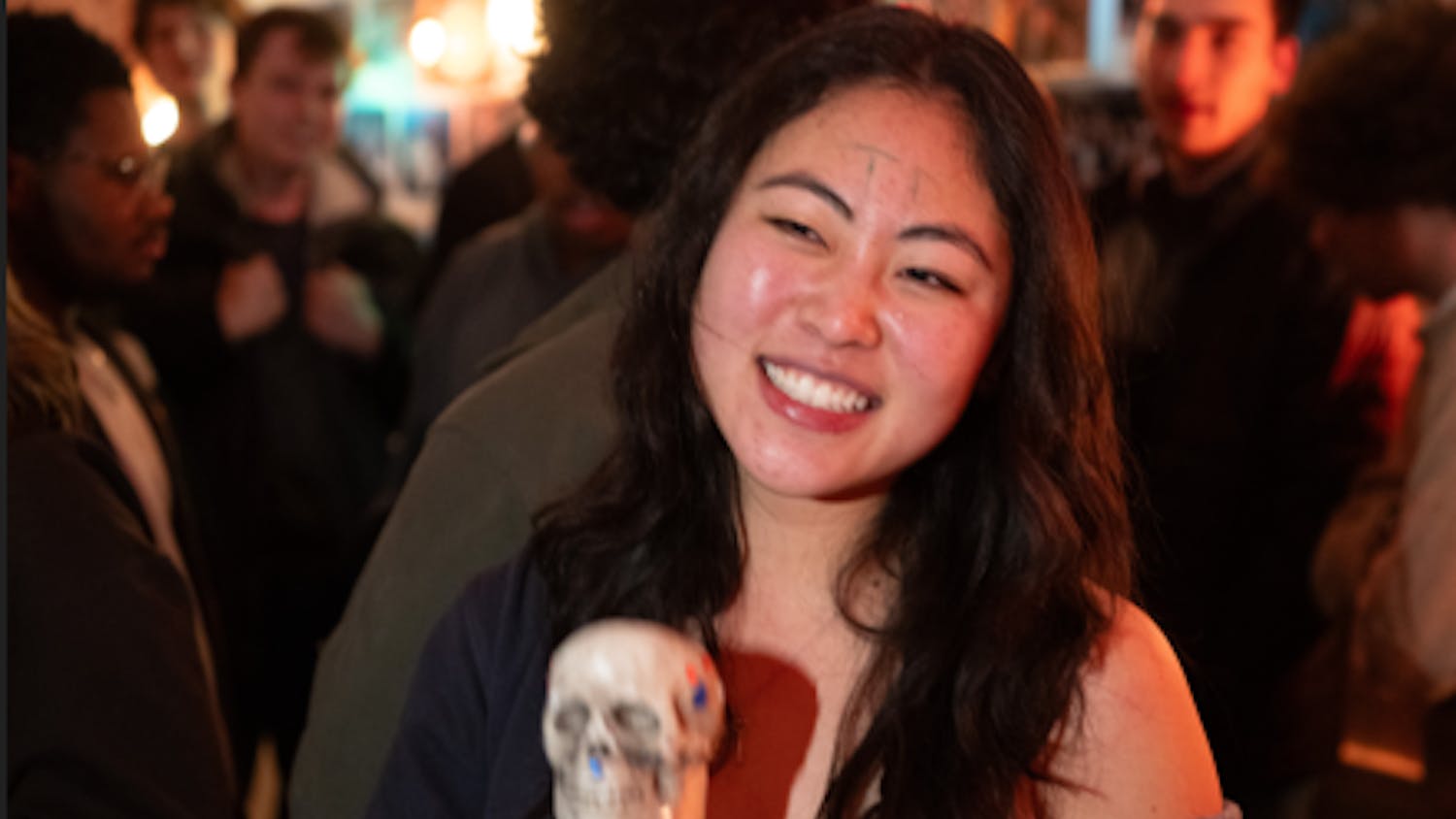The two Medford mayoral candidates, incumbent Stephanie M. Burke and David McKillop, Sr., discussed the past and future of Medford at the Medford Chamber of Commerce Mayoral Debate. The debate, hosted by the Jonathan M. Tisch College of Civic Life and JumboVote, was held in Cohen Auditorium on the evening of Nov. 2 in preparation for the mayoral election on Tuesday.
Opening remarks were given by Dean of Arts and Sciences James Glaser and Tina Caruso, president of the Medford Chamber of Commerce.
The debate was hosted by Dan Kennedy, an associate professor of journalism at Northeastern University and a panelist on WGBH-TV’s Beat the Press.
Kennedy offered ten questions over an hour, which touched on subjects such as infrastructure reconstruction, supporting the review of the town’s charter, how to preserve housing for current residents as housing costs rise, how to address the opioid epidemic and whether or not to establish Medford as a “sanctuary city,” or a city that promises to limit cooperation with federal authorities to prosecute undocumented residents.
McKillop criticized Burke over various aspects of her tenure as mayor, including the execution of her Medford Square Master Plan, her use of capital from the Complete Streets Funding Program and the efficiency of her response to the continuing opioid epidemic.
The incumbent, meanwhile, defended the initiatives she had begun since her term began in January 2016. In particular, she encouraged the town to protect undocumented residents. Medford is not officially designated a sanctuary city, though the city council passed a resolution by Burke affirming the city's commitment to diversity and inclusion in November 2016.
"Sanctuary city isn't really defined anywhere. It's a philosophy," Burke said. "It's how you treat people that you come across."
Burke added it is especially important that immigrant status not factor into local law enforcement.
"What I wanted to make sure with the [police] chief, is if someone is volunteering information about crime, that we're not asking them, 'are you a US citizen?' It really doesn't matter," Burke said. "We want them to be volunteering information to us. We can't put up that wall [of threatening federal intervention] so that they feel like they'll be scooted away."
McKillop, meanwhile, argued that the city should focus on other priorities.
"It's already been defined that we will take care of the people that are in the city," McKillop said. "But ... the law is the law. My job as the mayor is ... to focus on something that's even twice as important, and that's the opioid crisis."
Kennedy said in an interview with the Daily that he did not notice any significant differences in answers from the candidates, with the answers tending to be more subtly different.
In the most divergent instance he mentioned, as the candidates discussed funding the reconstruction of the Medford Public Library, McKillop stated that the town police and fire station should have been renovated prior to the library, while Burke implied that she had dealt with police facilities concurrently.
“That seemed like the clearest difference that I heard between the two of them," Kennedy said. "I'm not sure if it's a major difference but it was something people could pick up on and say, well, you know, that's interesting."
JumboVote, which co-hosted the event, was originally created to support student political learning and engagement during the 2016 presidential election season. However, the project has continued to branch out in its operations, including into local politics, according to Jen McAndrew, director of communications strategy and planning at Tisch College, which houses JumboVote.
“When the opportunity came to host the mayoral debate on campus through JumboVote, it’s sort of one and the same [with involving students in politics], so we decided to get engaged and help sponsor,” McAndrew said. “We obviously don’t take a side in these things, as this is a non-partisan event, but we do think it’s a great opportunity for political learning on our campus to have the candidates from one of our host communities.”
Hosting the debate allowed JumboVote to encourage a two-way relationship between Tufts students and the Medford community in terms of political engagement.
“There’s two sides to why this is important,” McAndrew said. “It gives an opportunity for Tufts students to hear from people who want to represent them as mayor. It’s also important because it provides an opportunity for Tufts to partner with one of our host communities and partner with that community’s political engagement.”
Tufts Community Relations Co-Director Director Rocco DiRico, who was present at the debate, stressed that Tufts was only supplying the venue for the debate, and that the Medford Chamber of Commerce was organizing, promoting and managing the debate.
Before the debate began, members of Our Revolution Medford, a chapter of the progressive national organization Our Revolution, collected signatures to help Raise Up Massachusetts put initiatives on the 2018 Massachusetts ballot for a gradual increase toward a $15 minimum wage and paid medical leave. They also collected signatures for a petition for the review of Medford’s town charter.
Simultaneously, at the intersection of College Avenue and Talbot Avenue, residents held campaign signs for both Burke and McKillop before the debate began.
The Somerville mayoral debate, held in the lead-up to Somerville’s own mayoral election on Nov. 7, was broadcast on Somerville Community Access Television about a week prior, on Oct. 23.
Tisch College, Jumbo Vote host Medford Mayoral Debate between Burke and McKillop

Medford mayoral candidates Stephanie Burke and David McKillop engage in debate in Cohen Auditorium on Nov. 2.





